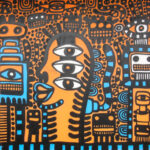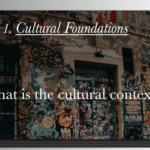
"Ethnographers flit forwards and backwards all the time as we create research objectives, wonder whether what we learnt yesterday is really the full story, and create and debate theories."
Ethnographers are not time travelers, but we may be close. Our frameworks and methodologies develop a nuanced understanding of how relationships, processes, and objects evolve over time. This 'temporal expertise' is key to enacting our ethical responsibility to the past and future, says anthropologist Dr. Oliver Pattenden, who will explore these themes in his upcoming EPIC Talk on April 25, 2023: From Complex Histories to Possible Futures: Ethical Practice Across Time. In this Q&A, he discusses the intersection of ethnography, ethics, and time; how to encourage organizations to focus on ethics as a core component of decision-making, and what he's learned from his three-year-old son lately. We hope you enjoy this rich conversation!
When people think about ethics, time probably isn’t the first thing that comes to mind. What inspired...









